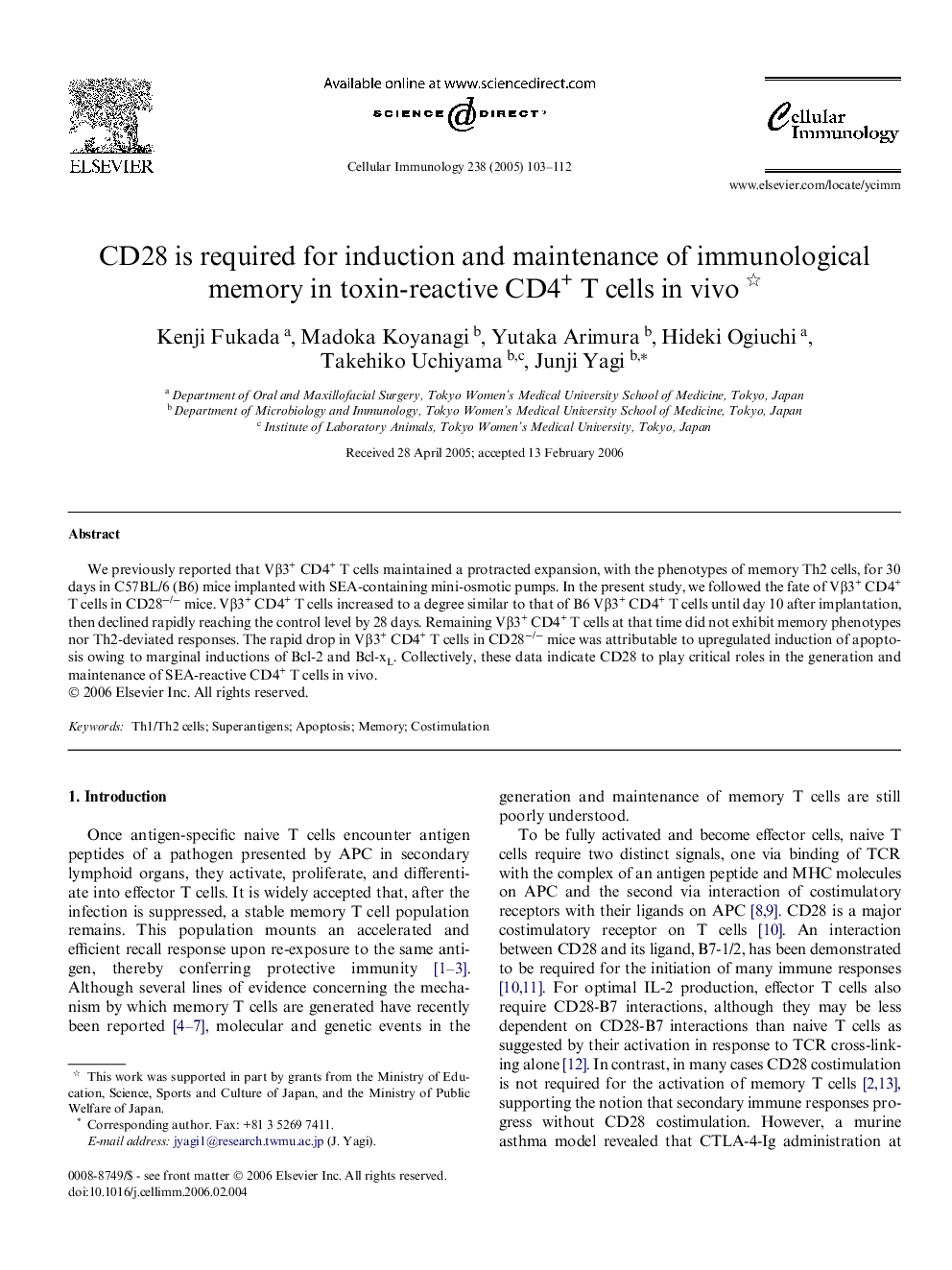| Article ID | Journal | Published Year | Pages | File Type |
|---|---|---|---|---|
| 10927114 | Cellular Immunology | 2005 | 10 Pages |
Abstract
We previously reported that Vβ3+ CD4+ T cells maintained a protracted expansion, with the phenotypes of memory Th2 cells, for 30 days in C57BL/6 (B6) mice implanted with SEA-containing mini-osmotic pumps. In the present study, we followed the fate of Vβ3+ CD4+ T cells in CD28â/â mice. Vβ3+ CD4+ T cells increased to a degree similar to that of B6 Vβ3+ CD4+ T cells until day 10 after implantation, then declined rapidly reaching the control level by 28 days. Remaining Vβ3+ CD4+ T cells at that time did not exhibit memory phenotypes nor Th2-deviated responses. The rapid drop in Vβ3+ CD4+ T cells in CD28â/â mice was attributable to upregulated induction of apoptosis owing to marginal inductions of Bcl-2 and Bcl-xL. Collectively, these data indicate CD28 to play critical roles in the generation and maintenance of SEA-reactive CD4+ T cells in vivo.
Related Topics
Life Sciences
Biochemistry, Genetics and Molecular Biology
Cell Biology
Authors
Kenji Fukada, Madoka Koyanagi, Yutaka Arimura, Hideki Ogiuchi, Takehiko Uchiyama, Junji Yagi,
